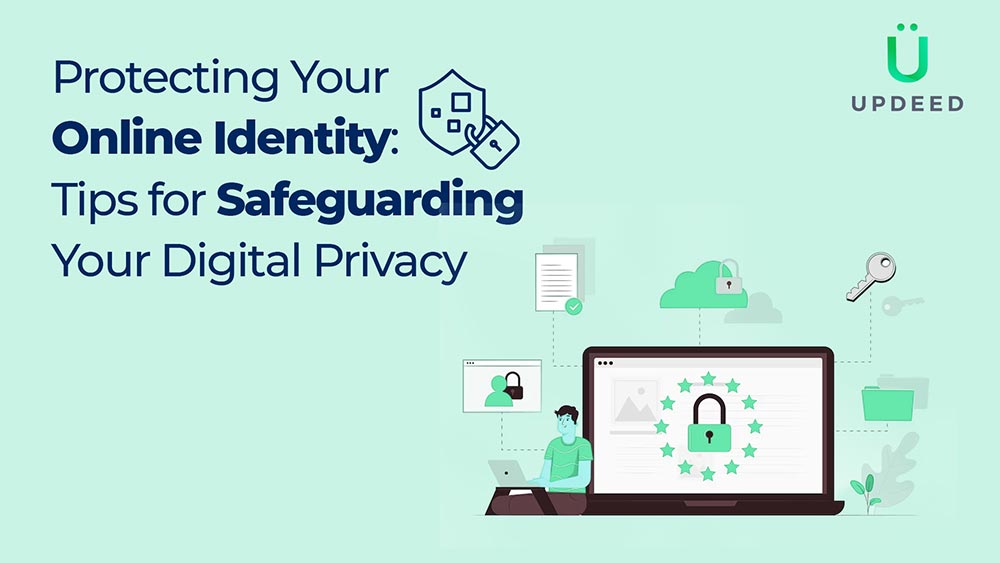Protecting Your Online Identity: Tips for Safeguarding Your Digital Privacy
The digital age has transformed how we communicate, work, and access information. Sharing too much personal information online is unsafe, leading to identity theft. But did you know that some scammers can use your information and pictures to make fake social media accounts with your name and photos?
These fake accounts can be used to trick others into sending money or spreading hurtful messages, which can damage your reputation. People who know you might think you’re doing these bad things when it’s actually the scammers using your information.

Hence, protecting online identity is critical today, where data breaches, identity theft, and cyberattacks are all too common. In this article, we will discuss tips for safeguarding your digital privacy.
Tips to follow
Use strong and unique passwords: One of the easiest ways to protect your online identity is by using strong and unique passwords. A strong password should be at least eight characters long and include a combination of upper and lower-case letters, numbers, and special characters. Additionally, using a different password for each account is crucial to prevent a single data breach from compromising all your accounts.
Enable two-factor authentication: Two-factor authentication (2FA) is an additional security layer requiring a user to provide two forms of identification before accessing an account. This can include something you know, such as a password, and something you have, such as a mobile device or security key. Enabling 2FA can significantly increase the security of your accounts, making it much harder for cybercriminals to access your sensitive information.
Keep your software up-to-date: Software updates are designed to fix security vulnerabilities and bugs that cybercriminals could exploit. Protecting your online identity is crucial to keep your operating system, web browser, and other software up-to-date. This ensures you use the latest version with the most advanced security features.
Be cautious of phishing attacks: Phishing attacks are a scam where cybercriminals impersonate legitimate companies or individuals to trick people into revealing sensitive information. This could include login credentials, credit card numbers, or other personal information. To avoid falling victim to phishing attacks, it’s essential to be cautious of emails, texts, and phone calls from unfamiliar sources. Always double-check the sender’s email address, and avoid clicking on links or downloading attachments from suspicious emails.
Use a virtual private network (VPN): It is a tool that encrypts your internet traffic, making it difficult for cybercriminals to intercept and steal your data. VPNs also hide your IP address, making it difficult for websites and online services to track your online activity. When choosing a VPN, selecting a reputable provider with a no-logs policy and strong encryption is crucial.
Limit the amount of personal information you share: Social media and other online platforms have made it easy to share personal information, but this can also put your digital privacy at risk. Limiting the amount of personal information you share online is important to protect your online identity. This includes not sharing your address, phone number, or other sensitive information.
Use anti-virus software: Anti-virus software is designed to protect your computer and other devices from malware and cyber threats. To protect your online identity, it’s important to use reputable anti-virus software that’s regularly updated.
To conclude
Protecting your online identity is essential in today’s digital age. These tips can significantly reduce the risk of data breaches, identity theft, and cyberattacks. Remember to stay vigilant, keep your software up-to-date, and limit the personal information you share online. By taking proactive steps to protect your digital privacy, you can enjoy all the benefits of the internet while staying safe and secure.
Ready to make a positive impact in the world?
UPDEED is the place for you. Our free and open platform is filled with inspiring stories from individuals and organizations who are making a difference in their communities and beyond. Connect and collaborate with like-minded individuals from around the globe on UPDEED, and discover your own potential to create meaningful change. Join our community and make a difference.





